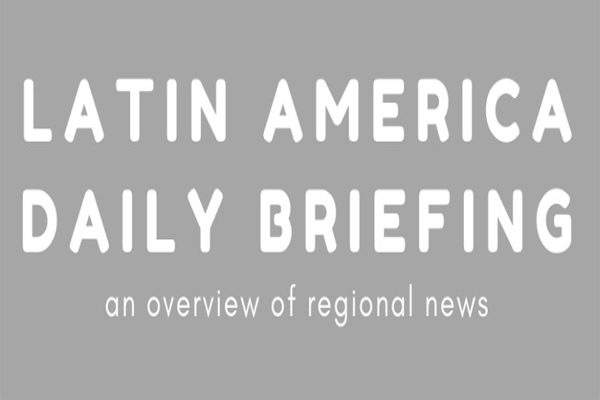
Russia’s invasion of Ukraine continues to raise questions over how Latin American countries will position themselves on the newly volatile global geopolitical map — with varied interpretations from analysts who diverge on the relevance of Russian influence in the region and how Latin American governments could ally themselves in a standoff.
The U.S. government remains vigilant to the movements of Russia and China: last week, during a hearing before the U.S. Senate, General Laura J. Richardson, commander of U.S. Southern Command, warned about the “aggressive expansion” of both countries in the region. (Voice of America)
Latin American government’s have been lukewarm in their criticisms of Russia, according to Andrea Moncada, who argues the stance reflects Russia’s growing influence in the region. A new “Pink Tide” will only make it more difficult for the U.S. and the West to counter Russia’s inroads in the region, she warns in Americas Quarterly.
Such fears have proven to be unfounded, more than a month into the war, counters Benjamin Gedan in World Politics Review, pointing to region-wide condemnation of Russia at the U.N. General Assembly. “Indeed, if anything, Latin America’s response to Putin’s brutality reinforced shared hemispheric values with the United States, suggesting that the United States still has ample diplomatic opportunities in this region.”
Most countries in Latin America backed the March 24 U.N. resolution condemning Russia’s violations of international humanitarian and human rights law. During the debate last week, Mexico’s delegate said his country and France introduced a humanitarian resolution in the Security Council, while Ecuador and Costa Rica drew attention to the plight of refugees and the broad humanitarian repercussions of the conflict, including famine and food insecurity. (United Nations)
It’s not just Russia that some U.S. officials consider a threat: U.S. Senator Marco Rubio said the real strategic threat is posed by China, and will co-chair a hearing today with U.S. officials and experts to discuss China’s deal making and diplomacy in the region. (Associated Press)
News Briefs
Regional
- Paris climate agreement goals will fail unless the rights of Indigenous people who protect rainforests are honoured, according to a new report by the World Resources Institute (WRI) and Climate Focus. Forest lands stewarded by Indigenous people and communities in countries such as Brazil, Colombia, Mexico and Peru sequester about twice as much carbon as other lands. (Guardian)
Venezuela
- Four Yanomami Indigenous men were killed by Venezuelan soldiers earlier this month in what was apparently a dispute over a shared WiFi router password. The incident reveals the Venezuelan state’s lack of understanding when dealing with Indigenous cultures in a military-controlled territory that is rife with illegal mining, reports the Washington Post.
Brazil
- Among pregnant and puerperal people affected by Covid-19 in Brazil, a disproportionate number have been Black, according to a new report in Gênero e Número.
El Salvador
- Judges in El Salvador say they have been locked out of the online penal information system, which means they cannot immediately access information about detainees and their whereabouts — of particular concern in the midst of mass arrests carried out under a state of emergency this week, reports El Faro. (See Monday’s post, Tuesday’s and yesterday’s.)
Mexico
- Daily extortion fees have turned into a fixed operating cost for restaurants in Mexico’s Quintana Roo restaurants, reports InSight Crime.
Colombia
- The frequency and size of cocaine seizures off the coast of Colombia’s San Andres island suggest that the Caribbean drug trafficking route remains a preferred option for Colombian traffickers, despite a heavy law enforcement presence, reports InSight Crime.
Chile
- Marijuana plantations in central Chile reveal the country is no longer just a major destination point for cannabis but a producer as well. Large scale marijuana cultivation in Chile points toward domestic production becoming an alternative to importing cannabis to feed the country’s lucrative local market, reports InSight Crime.
History
- “The Murders of Moisés Ville: The Rise and Fall of the Jerusalem of South America,” by journalist Javier Sinay tells the story of an Argentine Jewish immigrant settlement in the 1920s and 1930s. (NBC)
Latin America Daily Briefing —
http://latinamericadailybriefing.blogspot.com
—











